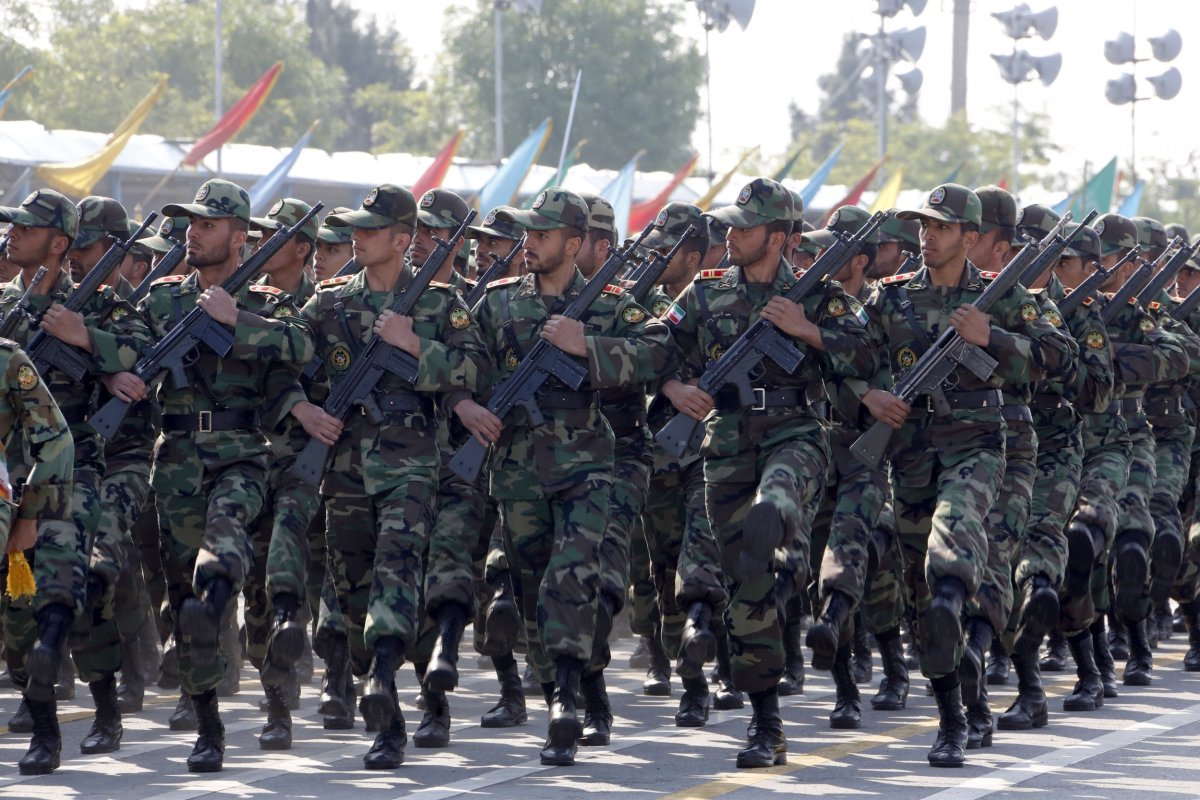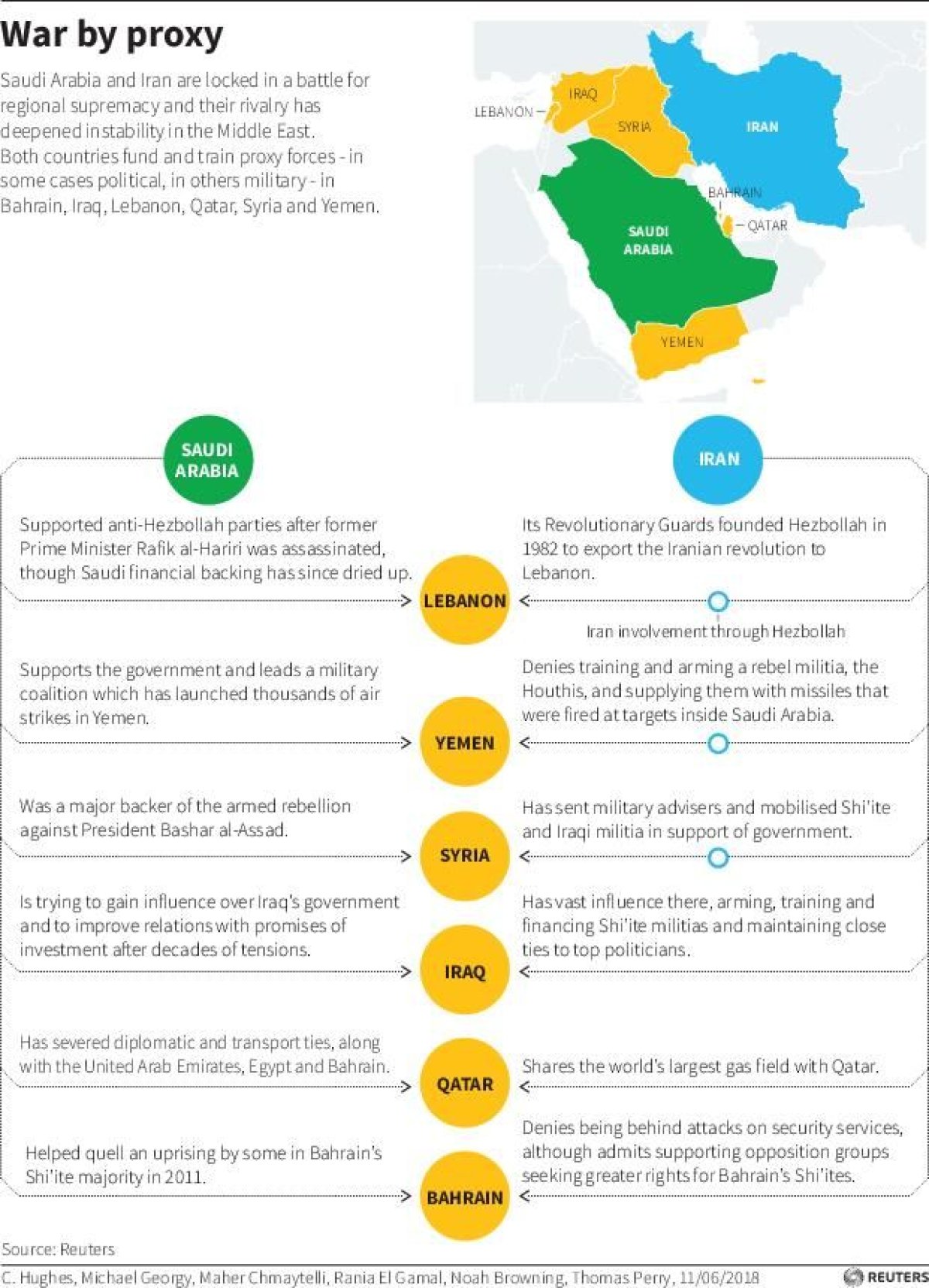The top military adviser to Iranian supreme leader Ayatollah Ali Khamenei has warned that the country's armed forces are prepared to handle any threat, even military action by the U.S., Israel and their allies.
Major General Yahya Rahim Safavi, who previously served as the chief commander of Iran's elite Revolutionary Guards, made the remarks Sunday while addressing a ceremony in the Iranian city of Shiraz, Fars Province. He vowed to respond to both military and non-military threats from the U.S. and Israel, both of whom have accused Iran of destabilizing the Middle East through its missile development and support for Shiite Muslim militias tackling jihadis and insurgents in Iraq and Syria.
"The Americans and the Zionists are the major threats that may wage a proxy war in the region," Safavi said, according to the semi-official Mehr News Agency. "A proxy war is a possibility, and we have learned to examine different scenarios and have a plan for every possible threat.
"Major powers beyond the region are in a strategic and geopolitical competition for Western Asia, and it is expected that the region will be the most volatile region for the next 12 years," he added.

The U.S. entered Iraq in 2003, overthrowing former Iraqi President Saddam Hussein and thus laying the groundwork for a powerful Sunni Muslim insurgency that spread 10 years later into Syria under the banner of the Islamic State militant group (ISIS). By 2014, ISIS had taken over about half of Iraq and Syria and both the U.S. and Iran were actively involved in battling it through direct offensives and local allies.
These local allies mostly fought alongside one another in Iraq, but they fell on opposite sides of a civil war in Syria spurred on by a 2011 uprising backed by the West, Turkey and Gulf Arab states. Iran's mobilization of mostly Shiite Muslim militias in Syria has especially angered Israel, who views their deployment as a threat to its own national security.
The U.S. military has on several occasions struck the Syrian military in response to allegations of chemical weapons attacks and other pro-Syrian government fighters in what it says was self-defense. However, Israel has quietly launched a number of preemptive strikes against what it says is a burgeoning Iranian military infrastructure in neighboring Syria. Pro-Iran forces reportedly struck back last month, prompting a massive Israeli escalation against various Syrian military positions purported to house Iranian or pro-Iran defense assets.
As Syrian President Bashar al-Assad begins to retake some of the country's last rebel-held lands located near the Israel-occupied Golan Heights, involved powers—including Russia, the U.S. and Jordan—have attempted to reach an arrangement that would exclude Iran and its sponsored militias from taking part, in order to avoid further clashes with Israel. Reports of a deal being made have emerged, but with some claiming it's already been violated as the Syrian military quickly advances against rebel fighters.

Iran has stated it would not leave Syria unless asked to do so by the government, which has so far considered Iran to be, like Russia, a legitimate partner in the battle against ISIS and other anti-government groups. Moscow has said all foreign forces should eventually leave Syria, including Iran, but has been especially critical of U.S. military presence. Assad has called on the U.S., other coalition powers and Turkey to leave immediately.
During his speech Sunday, Safavi took aim at another leading U.S. ally in the Middle East. When asked what Iran would do in response to a potential attack from rival Saudi Arabia, the military aide said "the royal palaces in Riyadh will be immediately showered with 1,000 missiles," according to Radio Farda, a subsidiary of the U.S. government-funded Radio Free Europe/Radio Liberty.
Israel and Saudi Arabia were two of the few countries pushing Trump to abandon the Iran nuclear deal, a 2015 agreement that saw Washington repeal billions of dollars worth of sanctions on Iran in exchange for Tehran cutting back on nuclear production. Trump announced the U.S. would leave the deal last month, defying fellow signatories China, France, Germany, Russia and the U.K.—all of whom have attempted to save the deal through extensive negotiations with Iran in the wake of the U.S. exit.
Uncommon Knowledge
Newsweek is committed to challenging conventional wisdom and finding connections in the search for common ground.
Newsweek is committed to challenging conventional wisdom and finding connections in the search for common ground.
About the writer
Based in his hometown of Staten Island, New York City, Tom O'Connor is an award-winning Senior Writer of Foreign Policy ... Read more
To read how Newsweek uses AI as a newsroom tool, Click here.








